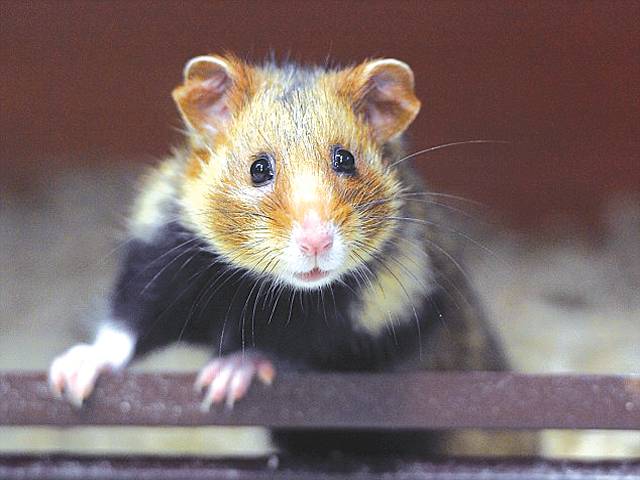PARIS (SKY): Hamsters living in the wild in northeastern France are eating their babies alive due to a limited diet of corn, according to new research. The rodents have in the past fed on a rich variety of grains, roots and insects. But due to changing farming practices with an emphasis on industrially grown maize or corn, their diet is limited and imbalanced. They are missing out on important vitamins like B3, or niacin, their habitat is “collapsing” and they are being turned into cannibals, believe experts. The European hamster, also known as Cricetus cricetus, is critically endangered in western Europe. Scientists carried out laboratory tests on the animals, with some mothers living on wheat and corn-based diets as well as clover or worms, and others who just had corn. About 80% of the babies whose mothers had a varied diet were weaned - but only 5% of the offspring of the females fed corn made it to that stage - with the rest eaten. The scientists said: “Females stored their pups with their hoards of maize before eating them. Pups were still alive at that time.” The mothers also ran around in circles, “climbing and pounding their feeders,” when scientists entered the room. The rodents had swollen and dark tongues, and blood so thick it was difficult to draw for samples, it was recorded. However, when the hamsters were given the vitamin B3 in their corn diets, their symptoms disappeared and they stopped eating their young.
Vitamin B3 deficiency has been linked to ‘black-tongue’ syndrome in dogs, and a condition in humans called pellagra, also known as the “3-D” disease: diarrhoea, dementia and dermatitis, such as eczema.
“Improperly cooked maize-based diets have been associated with higher rates of homicide, suicide and cannibalism in humans,” the researchers said.
Gerard Baumgart, president of the Research Centre for Environmental Protection in Alsace and a hamster expert, said: “There’s clearly an imbalance. Our hamster habitat is collapsing.”
He added: “Monoculture in agriculture is really bad for biodiversity. Now we need to take concrete action.”






